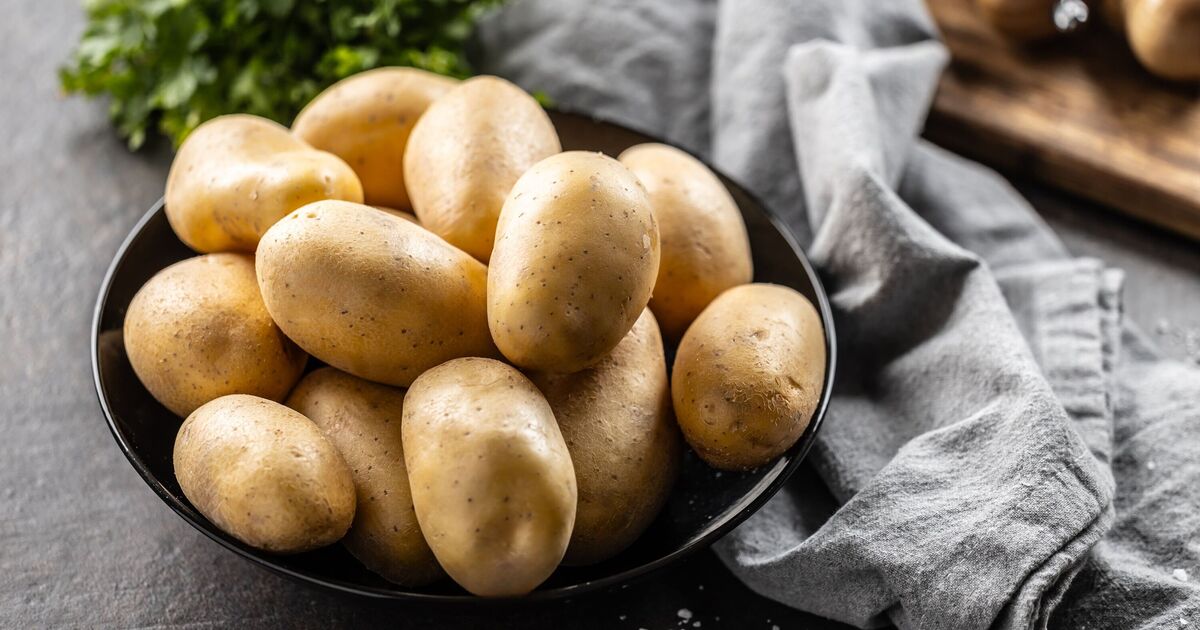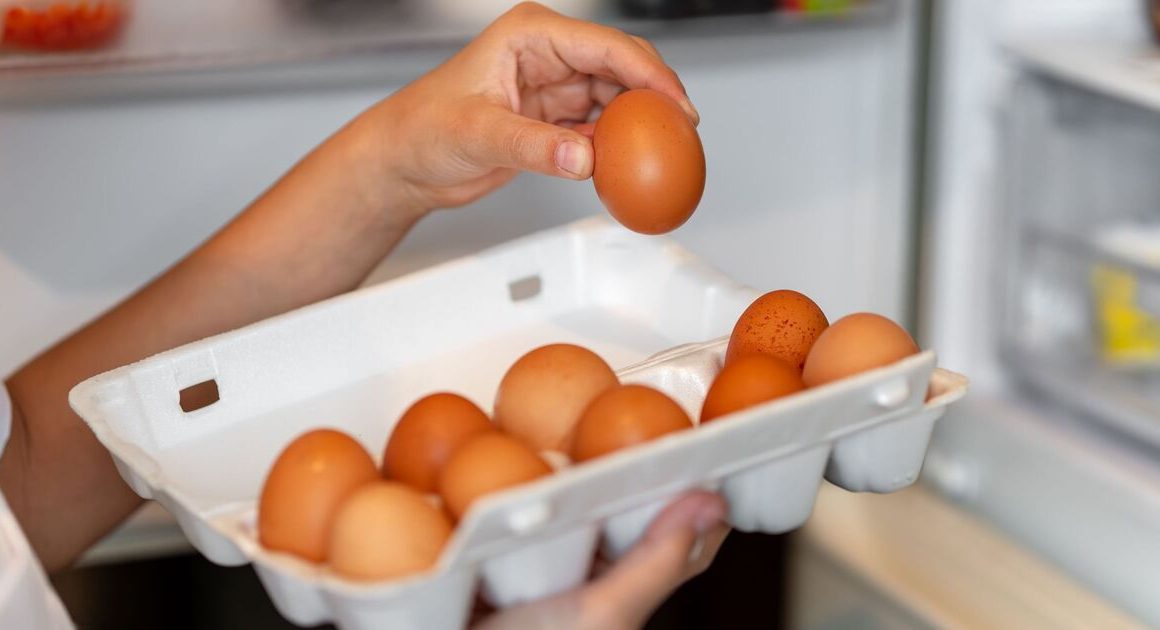Food storage hacks are handy when it comes to potatoes or they will end up sprouting, wrinkling, softening, or even turning an odd green hue faster.
This beloved veggie is typically purchased from the non-refrigerated section of supermarkets and many tend to store them in cupboards or other cool dark places once they get them home.
Contrary to popular practice, recent research suggests that taters can be safely popped into the fridge, extending their shelf life by at least six whole months.
According to Love Food Hate Waste experts, UK homes toss away close to half a million tonnes of fresh veggies and salads, as well as a quarter of a million tonnes of fresh fruit each year. This equates to a staggering £2.1billion worth of produce chucked out purely because they aren’t consumed in time.
Historically kept away from refrigeration due to concerns over raised acrylamide levels, potatoes have long been victims of this storage stigma. Known for forming in starchy foods, acrylamide exposure can potentially hike up cancer risks.
Now, however, a comprehensive scientific study shows that keeping spuds in the fridge “doesn’t actually increase acrylamide potential” when weighed against the usual cupboard-at-room-temperature approach.
This potato-repositioning research was carefully overseen by the Committee on the Toxicity of Chemicals in Food, Consumer Products, and the Environment (COT) and reviewed by the FSA so you can trust its solid findings.
In addition to this chilly advice, consumers are also wisely urged to observe the Best Before dates and labels on their potato products with careful consideration.
The charity WRAP, which runs the Love Food Hate Waste campaign, has revealed eye-opening results from a trial questioning the accuracy of best-before dates and their role in contributing to unnecessary food waste.
Survey findings from WRAP’s research suggest that best-before dates might not be a reliable measure of edibility, particularly when items are stored properly “when they last much longer”.
Consider spuds as a case in point. Left in a kitchen cupboard, they’re said to be at their best for 10 days according to the packet. Yet, it took an additional four days beyond this date for any spoilage to become apparent.
Even more impressive, when potatoes were kept chilled at four degrees, despite packaging claims of a 10-day shelf life, they stayed fresh for a whopping 20 days past the best-before date.
Ditching best-before dates entirely during the experiment showed that potatoes could endure even longer, both at room temperature and refrigerated.
The savvy experts urge that the fridge is the “right place” for storing spuds, ensuring “they’ll last the longest”.
In the right conditions, such as a cool, dark place, potatoes can remain edible for several months. But when refrigerated, their lifespan can triple, potentially extending beyond six months.
For those looking to maximise potato longevity, the advice is to remove them from any plastic packaging and transfer them to a fabric bag, which keeps out light and allows the tubers to breathe.










